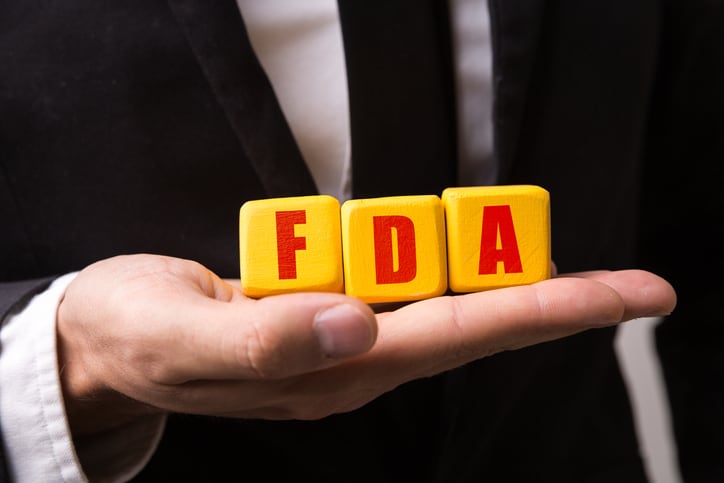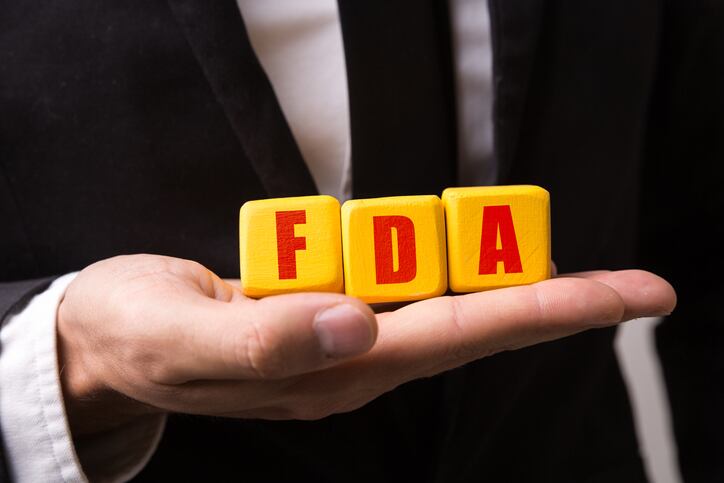In a Constituent Update, dated Nov 24, 2021 summarizing FDA’s tentative responses to Citizen Petitions filed earlier this year by CRN and NPA, the Agency said it is seeking more information on the past use of NAC in dietary supplements, including the earliest date that NAC was marketed as a dietary supplement or as a food.
The tentative responses* also noted that the agency needs “additional time to carefully and thoroughly review the complex questions posed in these petitions [filed by CRN and NPA earlier this year]”.
Specifically, the agency is seeking data and information on the earliest date that NAC was marketed as a dietary supplement or as a food, the safe use of NAC in products marketed as a dietary supplement, and any safety concerns.
“If applicable, the FDA will use the information submitted to the public docket and other applicable information to determine if rulemaking to make NAC lawful as a dietary supplement is appropriate,” stated the Agency.
NAC
NAC is naturally occurring and is found in foods like onions and garlic. It is a derivative of the amino acid L-cysteine and is a precursor of the cellular antioxidant glutathione.
FDA’s position to date has been that the ingredient is not a legal dietary ingredient due to prior approval as a drug: NAC was first approved as an inhaled mucolytic drug in 1963. There was also a new drug approval for NAC in 1985. However, the Agency has repeatedly stated that it has “not yet reached any determination” on the ingredient’s status.
NAC has been widely used for many years in finished dietary supplements, frequently as a standalone product, without any substantial safety concerns. A search of the Dietary Supplement Label Database from the NIH’s Office of Dietary Supplements yields 1,470 products containing N-acetyl-L-cysteine (database accessed Nov 24, 2021), including some of the biggest brands in the industry.
Citizen’s Petitions
While the FDA maintains its position that the ingredient is not a legal dietary ingredient, the Agency took no action regarding its status until the summer of 2020 when it sent seven warning letters to companies making hangover treatment claims, which FDA construed to be illegal disease treatment claims.
CRN and NPA filed Citizen’s Petitions relating to the ingredient earlier this year. The CRN petition asked the Agency to reverse its position that NAC-containing products cannot be dietary supplements. The NPA petition asked FDA to either determine that NAC is not excluded from the definition of a dietary supplement or, in the alternative, initiate rulemaking to make NAC a lawful dietary supplement under the Food, Drug, and Cosmetic Act.
FDA has now issued tentative responses to both citizen petitions and is requesting additional information from CRN, NPA, and other stakeholders.
NPA: “FDA is kicking the can”
Commenting on the FDA’s tentative responses, Dr Daniel Fabricant, NPA’s President and CEO, told NutraIngredients-USA: “We asked FDA for rulemaking and they kicked the can. They’ve clearly made a final decision on the status of the ingredient. This is FDA playing fast and loose.”
Dr Fabricant noted that FDA has reinforced its position several times in court documents relating to the recent case against Blackstone Labs. In those documents FDA stated that NAC is not a dietary ingredient, citing both 1963 and 1985 as the dates for approval of NAC as a new drug. The most recent statement of this position was made in a motion filed October 4, 2021.
This suggests, said NPA’s Dr Fabricant, that FDA has already decided on the regulatory status of NAC.
In response to FDA’s position, lawyers for the defendants in the Blackstone case argued, “DSHEA [the Dietary Supplement Health and Education Act] was enacted in 1994 and cannot be understood to retroactively ensnare an abandoned 1963 filing to proscribe future sales of this ingredient as an orally consumable dietary supplement.”
Such a statement is supported by an opinion in Landgraf v. USI Film Products, 511 U.S. 244, 270 (1994). United States v. Heth, 7 U.S. (3 Cranch) 399, 413 (1806), said the lawyers, which stated: “Since the early days of this Court, we have declined to give retroactive effect to statutes burdening private rights unless Congress had made clear its intent… Words in a statute ought not to have a retrospective operation, unless they are so clear, strong, and imperative, that no other meaning can be annexed to them, or unless the intention of the legislature cannot be otherwise satisfied.” (opinion of Paterson, J.)
CRN dissatisfied
Steve Mister, CRN’s President & CEO, said his organization is “extremely dissatisfied with today’s ‘tentative response’ from FDA to CRN’s June 1 citizen petition.
“FDA’s initial position, expressed in a series of warning letters in July 2020, appears to be that products containing NAC may not be lawfully marketed as dietary supplements. The legal issues here are clear: The provisions of the Dietary Supplement Health and Education Act of 1994 (DSHEA) may not be interpreted retroactively to remove ingredients that were lawfully marketed in 1994 and have enjoyed a long history of safe use since then. By delaying clearing up the status of NAC by asking for more data and refusing to admit its error disregards the law and disserves consumers who use NAC.
“This is not a complicated determination for FDA to make. DSHEA makes clear that ingredients in use as dietary supplement ingredients prior to its enactment are grandfathered into the supplement marketplace. Thus, pharmaceutical manufacturers could not have had any expectation of exclusivity in the years prior to the creation of this provision of the law. Given the long history of safe use of NAC, FDA cannot now try to establish a safety concern in order to award this ingredient exclusively to drug makers. Even members of Congress have expressed concerns over FDA’s position on NAC while the agency continues to avoid admitting its error in the warning letters.”
Mister added: “As FDA unduly prolongs making clear NAC’s status, many retailers have discontinued selling supplements containing NAC in misplaced reliance on those warning letters, which means consumers have a difficult time locating these products. FDA’s delay is a disservice to the dietary supplement industry, retailers, health care practitioners, and most importantly, the more than 200 million supplement users who rely on FDA to do its job.”
Comments
* Please click the links below to read FDA’s tentative responses:
Council for Responsible Nutrition (CRN) Tentative Response
Natural Products Association (NPA) Tentative Response
Comments can be submitted at Regulations.gov and identified with the docket number FDA-2021-P-0938. The closing date for submissions is January 25, 2022.





